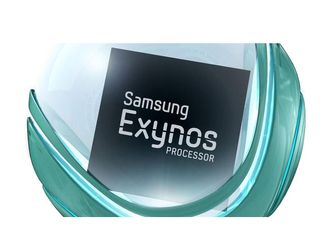
Samsung's $14.3 billion (15.6 billion won) chip plant, which is supposed to help the company increase revenues as smartphone sales slow, will begin production in the first half of 2017, according to Reuters. The new plant will be built in South Korea in the city of Pyeongtaek, south of Seoul.
The company expects to spend another $9.2 billion (10 billion won) investing in additional capacity.
"The Pyeongtaek semiconductor plant will play a central role in solidifying leadership in the mobile and server markets, which have shown rapid growth in demand recently, and securing share in the next-generation internet of things market," Samsung said in a statement.
Samsung will mostly produce DRM chips at the new plant, but some capacity will also be allocated to mobile processors depending on demand.
Samsung is the world's market leader for mobile DRAM with around 40 percent market share, and it's the second-ranked chip maker by revenue, after Intel. The company has seen increasing success lately with both its foundry and its application processor businesses.
With the success of the Galaxy S6, the Exynos chip has become more popular, as well. This has given Samsung a reason to keep investing significant resources into this AP division to continue improving the Exynos line of chips.
The Exynos chips will save Samsung money by not having to buy high-end SoCs from another company. It also gives Samsung the opportunity to start selling the chips to other OEMs. However, that's unlikely to happen for now, as Samsung will probably want to keep the Exynos chips for its own products as some sort of competitive advantage and a differentiating factor.
The Exynos 7420 was already built on the company's own 14nm FinFET process, while other chip makers such as Qualcomm had to compete on a 20nm planar process and wait another cycle until Samsung freed up its foundry for customers.
On the foundry side of the chip making business, Samsung became the leader in process technology for third-party SoC makers who are looking for foundries in which to manufacture their chips. Because of that, now Apple wants to make its chips in Samsung's foundries as well, giving Samsung even more of a reason to want to put more money in its chip plants.
We have reached out to Samsung for comment and confirmation, but thus far our queries have not been filled.
Update, 5/8/15, 6:20am PST: Samsung has confirmed to Tom's Hardware that the company's new $14 billion chip plant will begin production earlier than originally planned, in the first half of 2017. Samsung hasn't yet decided what specific products will be manufactured there, but the company expects the new chip plant to help it "solidify its industry leadership in the expanding mobile and server sectors, as well as respond to growing need for semiconductor components in the Internet of Things (IoT) marketplace."
Follow us @tomshardware, on Facebook and on Google+.